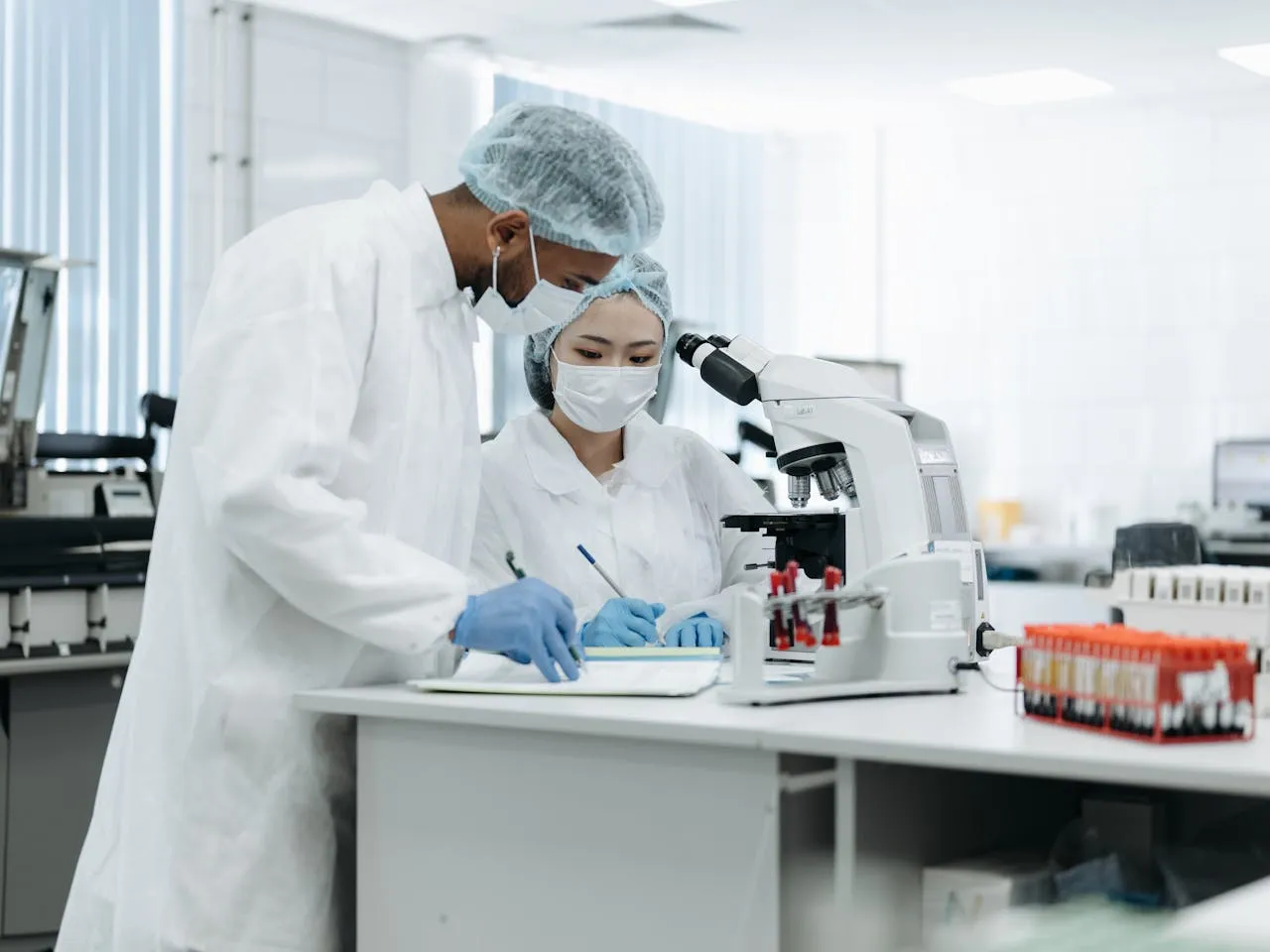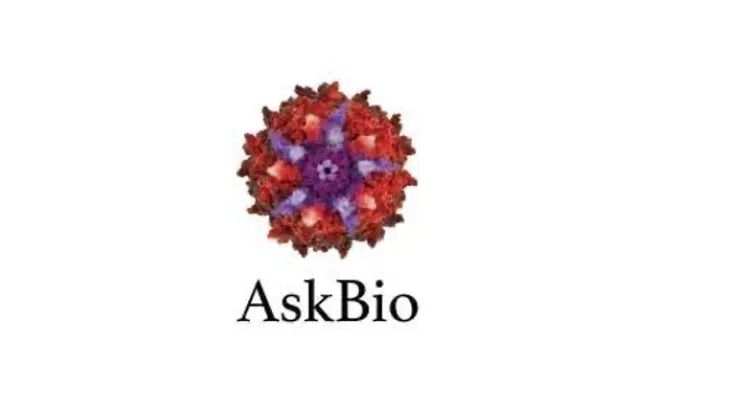
AskBio Reports Interim Safety Data from Phase 1/2 LION-CS101 Trial of AB-1003 in Limb-Girdle Muscular Dystrophy 2I/R9
AskBio Inc. (AskBio), a gene therapy company wholly owned by Bayer AG and operated independently, today announced that it will present initial safety data from the first cohort of participants in its ongoing Phase 1/Phase 2 LION-CS101 clinical trial. The trial is evaluating the investigational gene therapy AB-1003 in adults with limb-girdle muscular dystrophy (LGMD) 2I/R9, a rare and debilitating genetic muscle disorder. These interim findings will be shared at the 30th Annual International Congress of the World Muscle Society, being held from October 7–11, 2025, in Vienna, Austria.
The upcoming presentation represents the first look at blinded safety data from Cohort 1. Participants in this cohort received either a single intravenous (IV) infusion of AB-1003 or a placebo. Following the administration of the therapy, participants were monitored for 52 weeks to assess safety outcomes as part of the main trial. After this period, they are scheduled to enter a planned four-year long-term follow-up study to evaluate ongoing safety and potential durability of therapeutic effect.
Safety monitoring in the trial has been comprehensive, encompassing adverse event tracking, routine laboratory tests, physical examinations, vital signs assessments, electrocardiograms (ECGs), and echocardiograms. Interim results from the first 52 weeks indicate a favorable safety profile. Notably, no dose-limiting toxicities or serious adverse events were reported. The most frequently observed treatment-emergent adverse events, occurring in more than two participants, were mild to moderate in severity and included headaches, falls, and nausea. In three participants, asymptomatic, transient elevations of liver transaminases were detected; these were not accompanied by changes in bilirubin levels and resolved after adjusting corticosteroid treatment.
The data will be presented by Chris Passalacqua, MD, Vice President of Neuromuscular Medical Affairs at AskBio, during a scheduled session at 3:45 p.m. CEST on Friday, October 10, 2025.
“These initial safety results are encouraging and suggest that AB-1003 has an acceptable safety profile,” said Canwen Jiang, MD, PhD, Chief Development Officer and Chief Medical Officer at AskBio. “Gene therapy mediated by adeno-associated virus (AAV) technology holds the potential to restore FKRP function and stabilize disease progression. We remain committed to advancing our clinical research program with the goal of providing an effective therapeutic option for patients living with limb-girdle muscular dystrophy.”
Overview of the LION-CS101 Clinical Trial
The LION-CS101 trial is a double-blind, randomized, placebo-controlled, dose-escalation study designed to evaluate the safety of AB-1003 in adults aged 18–65 who have a genetically confirmed diagnosis of LGMD2I/R9. The trial is structured in two sequential, dose-level cohorts. Participants in both cohorts receive a single intravenous infusion of either AB-1003 or placebo, after which they are closely monitored for safety outcomes and potential therapeutic benefits.
The study was initiated in 2023 and is currently recruiting participants across six clinical sites in the United States. Cohort 1 enrolled five participants, all of whom remain active in the trial and are expected to complete the main study period. Enrollment for Cohort 2 is ongoing, and the total planned enrollment for the trial is up to 14 participants.
AB-1003 is an investigational recombinant AAV-based gene therapy. Its design is focused on restoring the activity of the fukutin-related protein (FKRP) enzyme, which is essential for proper muscle function. The therapy is administered as a one-time intravenous infusion, targeting muscle cells throughout the body. AB-1003 has not been approved by any regulatory authority, and its efficacy and long-term safety remain under evaluation.
For additional information about the trial, including eligibility criteria and study details, visit clinicaltrials.gov (NCT05230459) or askbio.com.
Limb-Girdle Muscular Dystrophy Type 2I/R9: A Rare, Progressive Disease
LGMD2I/R9 is a rare form of limb-girdle muscular dystrophy caused by mutations in the FKRP gene. This genetic defect leads to progressive weakness and wasting of the muscles in the arms and legs, affecting mobility and overall quality of life. Symptoms may appear anywhere from childhood to adulthood, and individuals with LGMD2I/R9 often experience difficulty running, walking, and performing daily activities.

Over time, muscle weakness progresses, often resulting in wheelchair dependence. Cardiac and respiratory complications are also common, as muscle involvement extends to the heart and diaphragm. It is estimated that fewer than 5,000 people in the United States are affected by LGMD2I/R9. Currently, there is no approved therapy for the condition, and patient management is largely supportive, focusing on symptom relief, physical therapy, and management of cardiac and respiratory complications.
AB-1003 represents a potential disease-modifying approach, aiming to correct the underlying genetic deficiency rather than solely addressing symptoms. By restoring FKRP enzyme function in muscle tissue, AB-1003 could potentially stabilize muscle function and slow disease progression, a major unmet need for patients living with this rare disorder.
Details of AB-1003 Administration and Safety Observations
In Cohort 1 of the LION-CS101 trial, participants received a single IV infusion of AB-1003 or placebo. Safety assessments included routine monitoring of:
- Adverse events (AEs)
- Laboratory parameters, including liver enzymes
- Physical examinations
- Vital signs
- Electrocardiograms (ECGs)
- Echocardiograms
During the first 52 weeks of follow-up, no dose-limiting toxicities were observed, and there were no serious adverse events attributed to AB-1003. Most reported AEs were mild to moderate in severity, including headaches, falls, and nausea. Three participants experienced transient elevations in liver transaminases, which were asymptomatic and did not involve bilirubin changes. These elevations resolved following corticosteroid dose adjustments.
These safety outcomes are consistent with expectations for systemic AAV-mediated gene therapy, which can transiently elevate liver enzymes but generally demonstrates an acceptable tolerability profile when managed appropriately. The trial will continue to monitor participants over the long-term follow-up period to assess ongoing safety and potential therapeutic durability.
Future Directions and Clinical Developmen
AskBio plans to continue the LION-CS101 trial, completing enrollment for Cohort 2 and following all participants for the duration of the 52-week main study and subsequent four-year long-term follow-up. The company remains committed to advancing AB-1003 through the clinical development pathway, with the ultimate goal of providing an effective treatment option for LGMD2I/R9.
“While these are early results, they represent an important step toward understanding the safety profile of AB-1003 in adults with LGMD2I/R9,” said Dr. Jiang. “Our team is excited to build on these findings and explore the potential of AB-1003 to improve outcomes for individuals affected by this challenging disease.”
The presentation of interim data at the World Muscle Society Congress provides a critical opportunity to share emerging clinical insights with the global neuromuscular research community, fostering collaboration and dialogue around the development of gene therapies for rare muscular dystrophies.
AskBio, a subsidiary of Bayer AG, is a clinical-stage gene therapy company dedicated to developing transformative therapies for serious genetic diseases. The company leverages its expertise in AAV-based gene delivery technologies to create potential treatments that address the underlying causes of disease rather than just managing symptoms. AB-1003 is among several investigational therapies in AskBio’s pipeline, targeting a range of neuromuscular disorders with high unmet medical need.
Key Takeaways
- AskBio presents interim safety data from the first cohort of its Phase 1/2 LION-CS101 trial in LGMD2I/R9.
- No dose-limiting toxicities or serious adverse events observed in the first 52 weeks.
- Common mild-to-moderate adverse events included headaches, falls, and nausea.
- Transient liver enzyme elevations in three participants resolved with corticosteroid adjustments.
- AB-1003 is a one-time IV gene therapy designed to restore FKRP function.
- LION-CS101 is a double-blind, randomized, placebo-controlled, dose-escalation trial enrolling up to 14 participants across six U.S. sites.
- LGMD2I/R9 is a rare, progressive muscular dystrophy with no approved disease-modifying treatments, affecting fewer than 5,000 people in the U.S.
- Long-term follow-up will continue for four years post-treatment to evaluate safety and durability.
For more information on the LION-CS101 trial, visit clinicaltrials.gov NCT05230459 or askbio.com.





